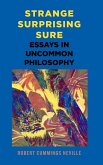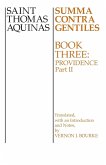Assuming that people want to be happy, can we show that they cannot be happy without being ethical, and that all rational people therefore should be able to see that it is in their own best interest to be ethical? Is it irrational to reject ethics? Aristotle thought so, claims Anna Lännström; but, she adds, he also thought that there was no way to prove it to a skeptic or an immoral person. Lännström probes Artistotle's view that desire is crucial to decision making and to the formation of moral habits, pinpointing the "love of the fine" as the starting point of any argument for ethics. Those who love the fine can be persuaded that ethics is a crucial part of our happiness. However, as Lännström explains, the immoral person does not share this love and therefore Aristotle denied that this argument would convince the immoral person to change. Lännström maintains, thus, that Aristotle's Ethics was written for those who already love the fine, aiming to help them improve their self-understanding and encouraging them to become better human beings. As a consequence, Aristotelian ethics remain viable today. Written in accessible and lucid prose, Loving the Fine contributes to the renewed interest in Aristotle's moral philosophy and will be of interest to students of virtue ethics and the history of philosophy. "Loving the Fine is a very interesting manuscript, treating some of the most significant issues in moral philosophy. As is well known, Aristotelian moral philosophy has undergone a great revival in the last quarter century through the work of scholars such as MacIntyre, Anscombe, and Nussbaum, to name only a few. Lännström enters into the debates that this revival has engendered and has important things to say about them." -Gilbert Meilaender, Phyllis and Richard Duesenberg Professor of Christian Ethics, Valparaiso University
Hinweis: Dieser Artikel kann nur an eine deutsche Lieferadresse ausgeliefert werden.
Hinweis: Dieser Artikel kann nur an eine deutsche Lieferadresse ausgeliefert werden.








